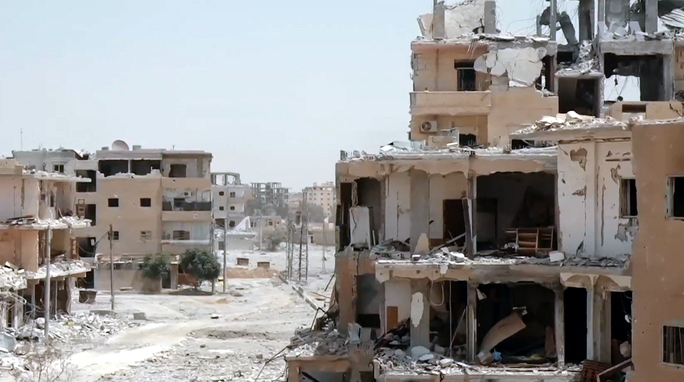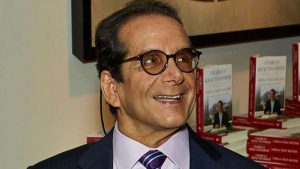
Churchill-Syria Analogies: A Syrious Situation
“Purblind worldlings” in Syria
The Syrian civil war has been going on since 2011 and is back in the news. The hitherto unsuccessful rebels have now taken over. (Whether they offer any better prospects for Syrians than the Assad regime is unclear.) So it is not entirely irrelevant to update this note about Syria from 2013.
In September that year, the political satirist Will Durst, “Pied Piper of the Potomac,” wrote in Summit Daily:
Everyone pretends not to be knee-deep in the icky, tricky, sticky Syria situation. You might say Washington is in a Semi-Syrious mode right now. And a Semi-Not-So-Syrious mode. Simultaneously. Because this whole affair is riddled with enigmas and mysteries enough to make Winston Churchill spin his conundrums right off. And rumor has it, he harbored huge conundrums.
I don’t know if Mr. Durst is a Churchillian, but he certainly has Churchill’s knack for coining words. “Syrious” ranks with Churchill’s “purblind worldlings”—the kind of people he often wished to “destrigulate.”* A lot of them are in Washington.
Forget the WW2 comparisons

The late, great Churchillian Charles Krauthammer joined the Syria debate around the same time as Durst. The commentator Hugh Hewitt had asked CK whether the present-day United States is the same one Churchill described in 1943 at Harvard: “The price of greatness is responsibility.”
Was America still up to that? Hewitt asked. Attitudes about America’s role in the world are far different today than in Churchill’s time.
Of course they are. And Charles Krauthammer, sage as ever, cautioned against comparing modern situations like Syria (we might now add Ukraine or Gaza) to the Second World War, or modern political leaders to Churchill.
There is a difference of scale…. The Second World War was an existential struggle where the future of civilization was in the balance. It could be that Syria, or these other trouble spots, will develop into a World War-like conflict. But that is fairly unlikely right now. It is not a conflict in which the existence of ways of life is at stake. [Remember, this was in 2013.]
Syria and Assad are (or were) supported by Russia—at least ostensibly. That makes what happens there more important than it might otherwise be. There is no shortage of opinions as to what the U.S. or the West or free peoples should do about Syria and its leading ally. That is a ft subject for debate. But as to what Winston Churchill would do….please.
Strength and weakness
 We may, however, learn from a piece of Churchillian advice from 1946, which may still be applicable. He was talking about the Russians, but it applies very broadly as a guide for general policy:
We may, however, learn from a piece of Churchillian advice from 1946, which may still be applicable. He was talking about the Russians, but it applies very broadly as a guide for general policy:
* “Churchillisms”
From Churchill in His Own Words, 2015:
Purblind Worldlings: “Thoughtless dilettanti or purblind worldlings sometimes ask us: ‘What is it that Britain and France are fighting for?’ To this I answer: ‘If we left off fighting, you would soon find out.’” —WSC, Broadcast, London, 30 March 1940
Destrigulate: In 1938 Eddie Marsh, Churchill’s private secretary, used the term “destrigulating the rhododendrons” (deadheading stalks, snatching out the shrivelled blossoms)—a word he said had been coined by Churchill. Eddie was asked: Could one ever be said to destrigulate redundant epithets? “Certainly not,” Eddie replied. “The word is strictly horticultural.” —Christopher Hassall, Edward Marsh (London: Longmans Green, 1959), 612.
Further reading
“Conant, Churchill, and the Harvard of 1943,” 2023.
“Churchill, Palestine, and Israel, 1945-51,” 2023.
“‘If You Can Meet with Triumph and Disaster…’ Charles Krauthammer 1950-2018,” 2018.
“Desert Island Books: Charles Krauthammer’s Things That Matter,” 2018
“Churchill in His Own Words: A Review by Manfred Weidhorn,” 2008.






